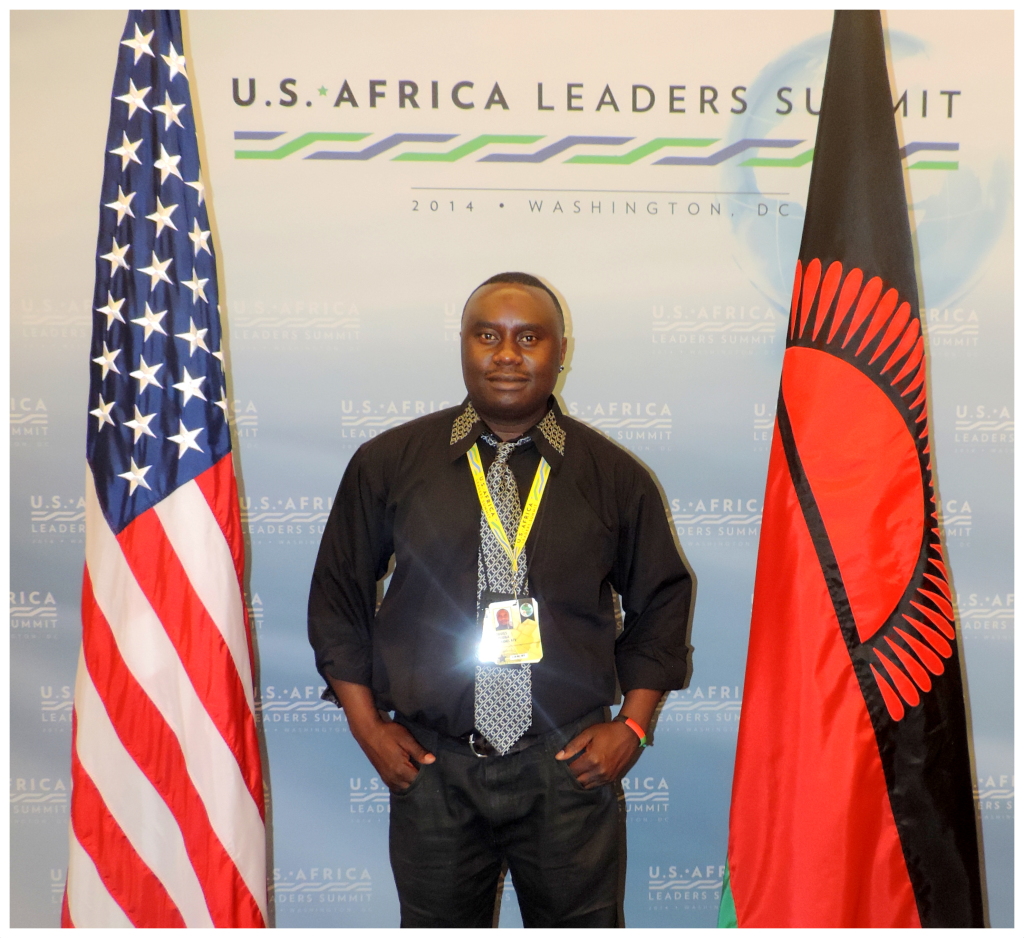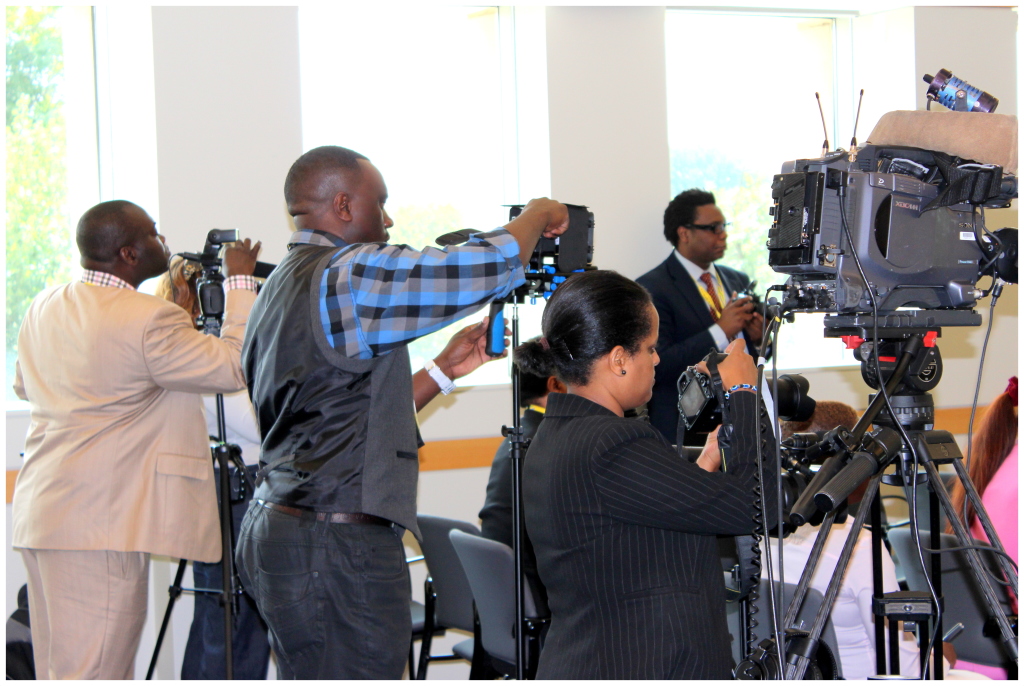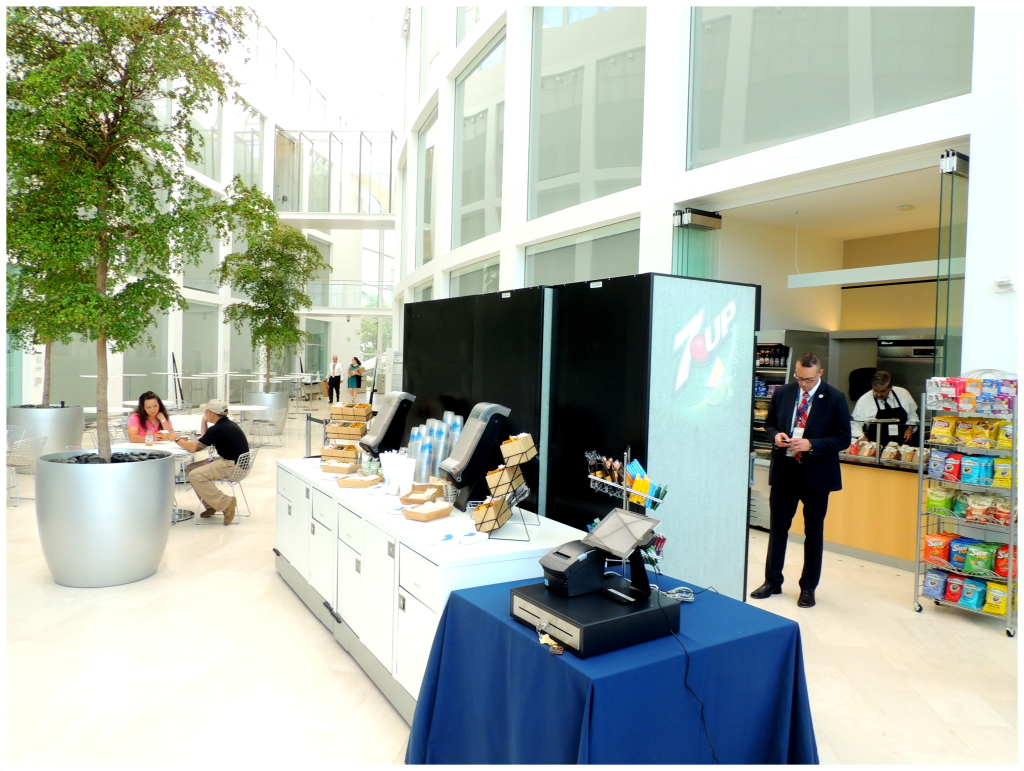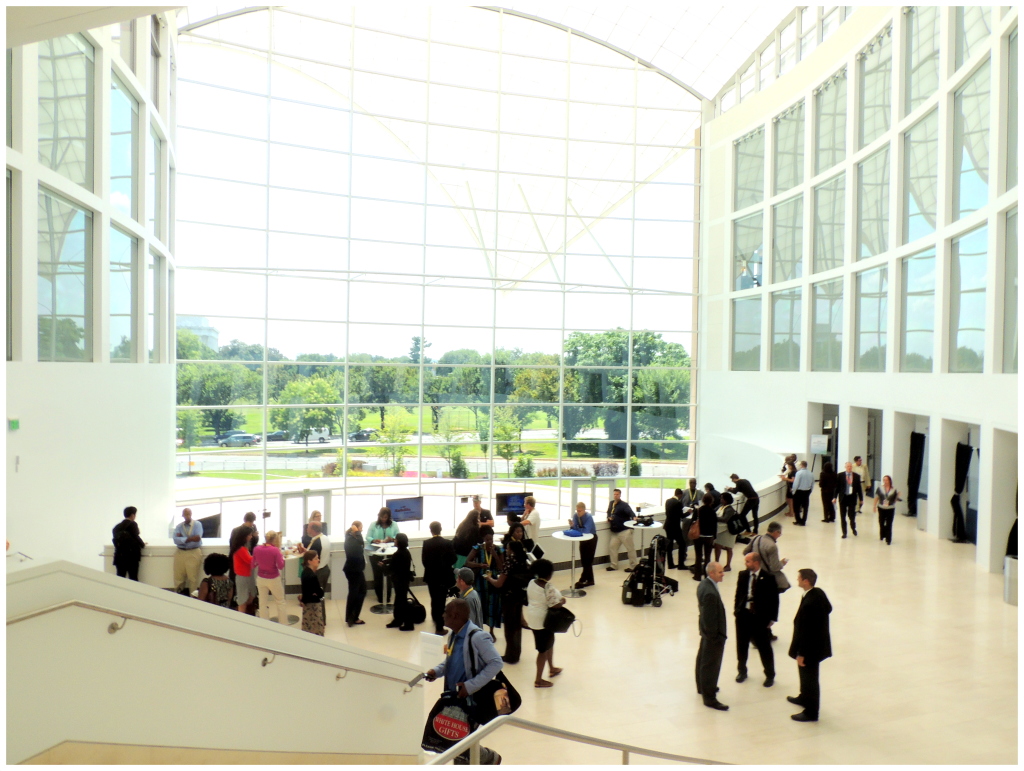During the U.S – Africa Leaders Summit, Channel A TV had an opportunity to interview the U.S Spokesman of the Bureau of African Affairs, Mr. William B. Stevens. Will Stevens began his duties as the AF Spokesperson in 2013. Since joining the State Department in 2004, he has had foreign assignments in Belarus, Israel, and Turkmenistan, primarily focusing on public diplomacy, exchanges, and the media.
Prior to joining the Bureau of African Affairs, Mr. Stevens served as the Special Assistant and Chief of Staff to the Principal Deputy Assistant Secretary of the Bureau of Educational and Cultural Affairs where he assisted ECA’s senior leadership in managing over 120 program, a budget of $635 million and a staff of over 400 employees. A native of Great Falls, Virginia, Will received a B.S. degree in International Finance from Brigham Young University. He speaks Russian and Hebrew. He is married with five children.



THE UNITED STATES INSTITUTE OF PEACE
The United States Institute of Peace (USIP) is an American non-partisan, independent, federal institution that provides analysis of and is involved in conflicts around the world. The Institute was established by an act of U.S. Congress that was signed into law by President Ronald Reagan in 1984. The board is appointed by the President and confirmed by the Senate, and board members have historically had close ties to American intelligence services. Its headquarters, in the Foggy Bottom neighborhood of Washington, D.C., sits at the northwest corner of the National Mall near the Lincoln Memorial and Vietnam Veterans Memorial.
Mission
The United States Institute of Peace Act, passed in 1984, calls for the Institute to “serve the people and the Government through the widest possible range of education and training, basic and applied research opportunities, and peace information services on the means to promote international peace and the resolution of conflicts among the nations and peoples of the world without recourse to violence”.
The Institute carries out this mission by operating programs in conflict zones, conducting research and analysis, operating a training academy and public education center, providing grants for research and fieldwork, convening conferences and workshops, and building the academic and policy fields of international conflict management and peace building. On many of its projects, the Institute works in partnership with nongovernmental organizations, higher and secondary educational institutions, international organizations, local organizations, and U.S. government agencies, including the State Department and the Department of Defense.
History
The idea behind the formation of a peace organization in the United States dates to the first years of the republic. In 1783 George Washington called for the adoption of a “proper Peace Establishment“. Almost two-hundred years after Washington circulated his vision to the states President Ronald Reagan signed the United States Institute of Peace Act in 1984.
Spurred by a grassroots movement in the 1970s and 1980s, Senator Jennings Randolph joined Senators Mark Hatfield and Spark Matsunaga and Rep. Dan Glickman in an effort to form a national peace academy akin to the national military academies.The 1984 act creating USIP followed from a 1981 recommendation of a commission formed to examine the peace academy issue appointed by President Jimmy Carter and chaired by Matsunaga.
Robert F. Turner was the Institute’s first president and CEO, holding that position from 1986 to 1987. He was followed by Ambassador Samuel W. Lewis (1987 – 1992), Ambassador Richard H. Solomon, (1992 – 2012), and former Congressman Jim Marshall (2012 – 2013). Kristin Lord is acting President (2013). In its early years, the Institute first sought to build the field of international conflict management and peace building. In a 2011 letter of support for USIP, the Association of Professional Schools of International Affairs noted that this analytical work has “helped to build the conflict management and resolution field, both as an area of study and as an applied science”.

Under Solomon’s leadership, the Institute expanded its operations in conflict zones and its training programs, initially in the Balkans and, after September 11, 2001, in Afghanistan and Iraq. It also became the home of several congressional mandated blue-ribbon commissions, including the Iraq Study Group, the Congressional Commission on the Strategic Posture of the United States, and the Quadrennial Defense Review Independent Panel. Today, the Institute conducts active programs in Afghanistan, Iraq, Libya, Pakistan, Sudan, South Sudan, and elsewhere.
In 1996, Congress authorized the Navy to transfer jurisdiction of the federal land—a portion of its Potomac Annex facility on what has been known as Navy Hill—to become the site of the permanent USIP headquarters, across the street from the National Mall at 23rd Street and Constitution Avenue NW, in Washington, D.C. Prior to its construction, the Institute leased office space in downtown Washington. Construction of the headquarters building concluded in 2011.
Organization
USIP coordinates its work through five main centers:
- Center for South and Central Asia (SCA)
- Center for Governance, Law, and Society (GLAS)
- Center for the Middle East and Africa (MEA)
- Center for Applied Research on Conflict (ARC)
- The Academy for International Conflict Management and Peacebuilding
Leadership
The Institute is governed by a Board of Directors, with an equal number of Republican and Democratic directors appointed by the President of the United States and confirmed by the Senate. Kristin Lord is the Acting President of the Institute. Jim Marshall, a former congressman, is the immediate past president of USIP. He was preceded by Richard H. Solomon, a former senior State Department official and U.S. Ambassador to the Philippines, who had held the position from 1992 to 2012. The president in 1987-93 was U.S. ambassador to Israel (1977-85) Samuel W. Lewis.
Board of Directors
- Stephen Hadley, Chairman – Principal, Rice Hadley Gates, LLC
- George E. Moose, Vice Chairman – The George Washington University, Adjunct Professor of Practice
- Judy Ansley – Former Assistant to the President and Deputy National Security Advisor at the National Security Council (NSC)
- Eric S. Edelman – former Under Secretary of Defense for Policy, U.S. Department of Defense
- Kerry Kennedy – human rights activist and former executive director of the Robert Kennedy Memorial
- Ikram U. Khan – Quality Care Consultants, LLC
- Stephen D. Krasner – Stanford University, Graham H. Stuart Professor of International Relations
- John A. Lancaster – National Council on Independent Living (NCIL), former Executive Director
- Jeremy A. Rabkin – George Mason University School of Law, Professor
- J. Robinson West, Chairman – PFC Energy, Chairman
- Nancy Zirkin – Leadership Conference on Civil Rights, Executive Vice President
- Members ex officio
- Chuck Hagel – Secretary of Defense (or his designee)
- John F. Kerry – United States Secretary of State, State Department (or his designee)
- Major General Gregory S. Martin – President, National Defense University

